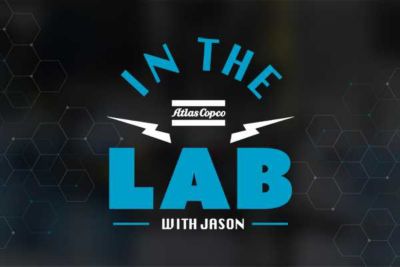Atlas Copco Calibration Services
Professional torque and angle calibrations increase quality and reduce rework and risk of liability costs. Performed by our calibration experts, all Atlas Copco calibrations fulfill global and national requirements.
What we provide:
- Atlas Copco Tool calibration certificates following relevant standards
- Both lab and on-site calibration services
- Functional test before calibration
- Calibration including adjustment where applicable
- Performed only with traceable reference equipment
- Calibration due-date reminder
- Retrievable calibration certificates for at least 10 years
- Atlas Copco Tool Calibration service is always included in EasyStart and ToolCover.
Our calibration certificates around the world
Atlas Copco Central Service Workshop in Europe
- Annex to the Accreditation Certificate D-K-17447-01-03 196.8 kB, PDF
Eastern Europe
Thailand
- Certificate of Lab Accreditation ISO/IEC 17025 768.9 kB, PDF
Central Europe
- Annex to the Partial Accreditation Certificate D-K-17447-01-02 667.9 kB, PDF
- Anlage zur Teil-Akkreditierungsurkunde D-K-17447-01-02 724.4 kB, PDF
- DakkS Accreditation Certificate D-K-17447-01-00 216.6 kB, PDF
- Annex to the Partial Accreditation Certificate D-K-17447-01-01 730.6 kB, PDF
- Scope Atlas Copco Tools Central Europe 547.9 kB, PDF
- Anlage zur Teil-Akkreditierungsurkunde D-K-17447-01-01 741.4 kB, PDF
- DakkS-Akkreditierungsurkunde D-PL-17447-01-00 353.2 kB, PDF
India
- Certificate of Accreditation ISO/IEC 17025 205.9 kB, PDF
- Scope of Accreditation ISO/IEC 17025 165.3 kB, PDF
UK
- Accreditation Certificate UKAS 244.5 kB, PDF
China
- Laboratory Accreditation Certificate CNAS 1.2 MB, PDF
- 认可的校准和测量能力范围(中文) 211.5 kB, PDF
Brazil
- Certificado de Acreditação ISO/IEC 17025 452.3 kB, PDF
- Escopo da Acreditação ISO/IEC 17025 269.4 kB, PDF
Mexico
- Acreditación de Calibración PT-18 423.9 kB, PDF
- Cerificado de Acreditación E-106 348.7 kB, PDF
South Africa
- Certificate of Accreditation SANAS ISO/IEC 17025 60.2 kB, PDF
Italy
- Allegato al Certificato di Accreditamento ISO/IEC 17025 177.7 kB, PDF
- Certificato di Accreditamento ISO/IEC 17025 165.9 kB, PDF
US
- Accreditation Certificate ISO/IEC 17025 574.8 kB, PDF
Indonesia
- Sertifikat Akreditasi ISO/IEC 17025 433.6 kB, PDF
- Lampiran Sertifikat Akreditasi ISO/IEC 17025 201.5 kB, PDF
Downloads
- Calibration Leaflet 305.1 kB, PDF
- Tool Calibration Leaflet 2.7 MB, PDF
- Quality Assurance Calibration Leaflet 339.7 kB, PDF
How often should I calibrate tools?
Based upon the international guideline from ILAC (International Laboratory Accreditation Cooperation), the calibration interval depends on several factors, including frequency of usage, required accuracy, and the internal quality requirements of your company. The customer’s quality management system should define the calibration interval, such as ISO9001. However, if there is no quality or regulatory requirement, we recommend calibration every 12 months for tools and measuring equipment. In many safety-critical or medical applications, the guidelines require an interval of 3 to 6 months.
Calibration is included in our preventive maintenance programs, namely ToolCover.
What is the difference between factory and accredited calibration?
Only ISO 17025 accredited providers can perform accredited quality assurance calibrations. The measuring equipment must be traceable to national standards, and measurement uncertainty stated. There are more stringent demands concerning the process, system, training of the technicians, and regularly performed audits. On the other hand, factory quality assurance calibration can be performed by non-accredited providers. This is often a simplified testing procedure, not necessarily traceable and based on national/international standards, and it does not include measurement uncertainties.
What are common calibration lab standards? What is ISO 17025?
When considering calibration, you need to be sure that your tools and measuring equipment are in good hands. ISO/IEC 17025 is a standard defining competence for lab and field calibrations, and it is the core requirement to become an accredited calibration provider. Several OEMs (Original Equipment Manufacturers) use the automotive quality management standard IATF 16949 - International Automotive Task Force. It defines requirements for automotive industry suppliers, stating that calibration must be performed by an accredited lab.
What are common tool calibration standards?
ISO 5393 is an extensive performance test method for power tools, and the Machine Capability Test follows selected parts of this extensive standard. German OEMs developed a new Machine Capability Test standard, VDI/VDE 2645–2, that can define a certification by either certifying the entire tool or certifying the tool for a particular application only. Moreover, this norm covers not only torque but also angle calibration.
What are common quality assurance calibration standards?
ISO 6789 is an accredited calibration for wrenches covering electronic, dual, and click wrenches. EURAMET/cg-14 is today the only widespread standard for accredited calibration of torque transducers for Quality Control. Most markets apply national standards for accredited Quality Assurance calibrations based on this procedure. Also worth mentioning is VDI/VDE 2648 for angle calibration of quality assurance equipment: this standard is used globally due to the lack of international standards.







